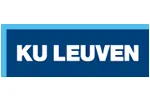

| The award | How you will study | Study duration | Course start | Domestic course fees | International course fees |
|---|---|---|---|---|---|
| MSc | Full-time | 2 years | September | - | - |
KU Leuven is already preparing the next generation of integrated systems - will you be involved? The master of Electrical Engineering gives you an in-depth training in the software and hardware design of electronic systems.
What's the programme all about?
Electricity and electronic systems have been the driver towards a modern society, providing welfare and comfort, clean solutions and new smart applications. An example is the smartphone, which makes use of advanced ICT and multimedia for its interface, new sensors for wearables and advanced secure communication. The trend is to make applications which are smaller, more interconnected, secure, smarter and efficient. These systems will depend on miniature devices omnipresent in the digital environment.
Applications executed by these networked systems will be rich in multimedia content and will require system-wide security and privacy features. Interconnected applications in the energy domain will provide sustainable and reliable energy, relying on active consumers while making use of automated processes. Our goal is to equip you with the necessary technical skills and methods to contribute to the creation of this digital environment. The program counts four options, each with their own emphasis.
Programme outline
The program starts with courses that provide the common hardware and software basis for electronic platforms, analogue and digital circuits, signal processing and telecommunications, supplemented with a range of option specific in-depth courses. You choose one of the following four options:
The remaining credits (27 to 33, depending on the option) are available for elective courses to enable you to personalise your programme. A student can make a programme ranging from courses of all options, following courses from other engineering masters, to broader programmes including many non-engineering courses. It also allows internships and international courses.
Strengths
KU Leuven Online Open Day
Discover KU Leuven and its wide range of degree programmes at our Online Open Day! For more information, head to www.kuleuven.be/onlineopendays
Below are some suggested courses at other providers that you may also be interested in:
If you do not meet the entry requirements for this course then consider one of these postgraduate preparation courses from another institution:
Pre-Master's Programme in Business, Economics, Finance and Management
ONCAMPUS Southampton
Find out moreThere are 123 other courses listed from KU Leuven. A selection of these are displayed below:
Join the Сưłć´«Ă˝ email list and never miss a chance to turn your study abroad dreams into reality!
